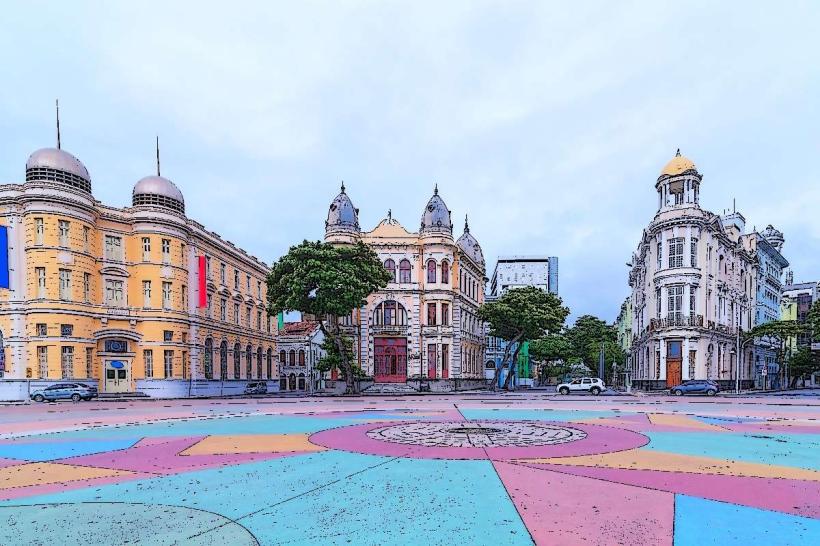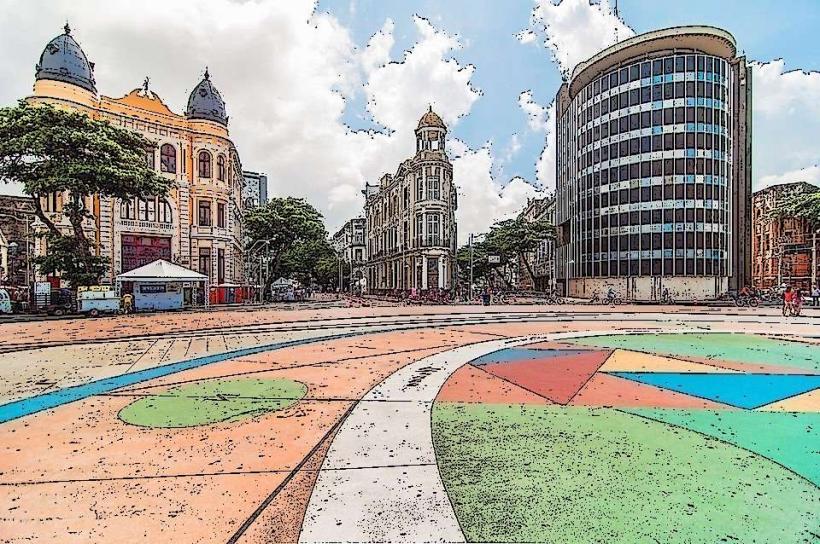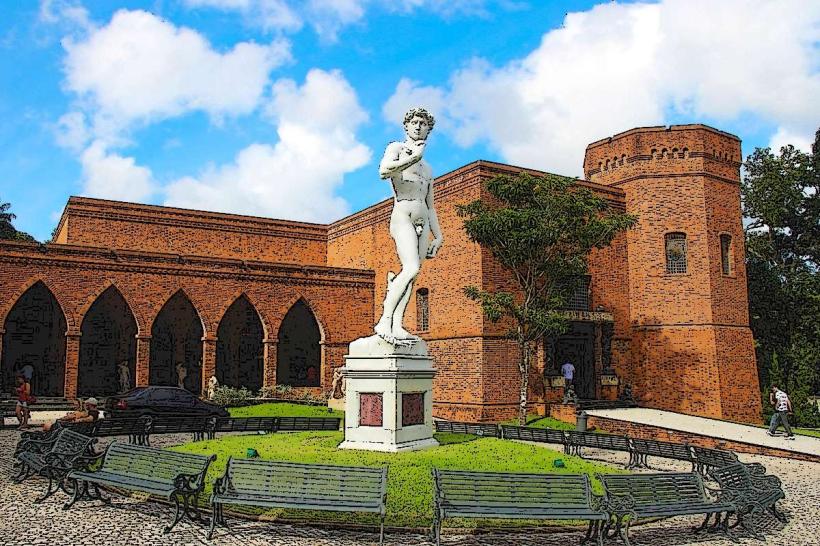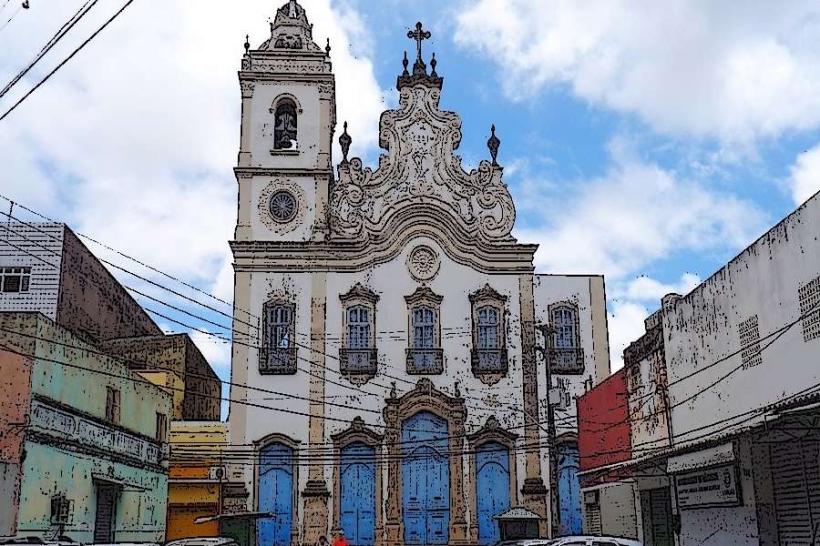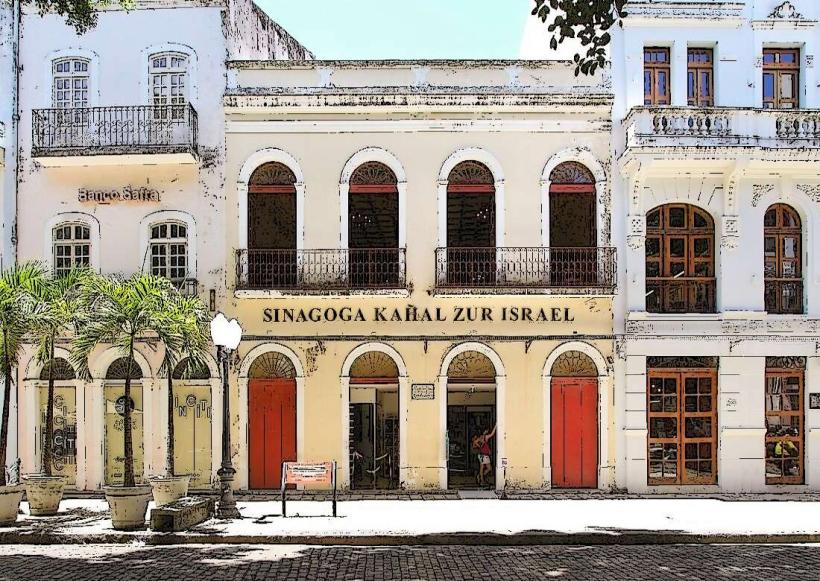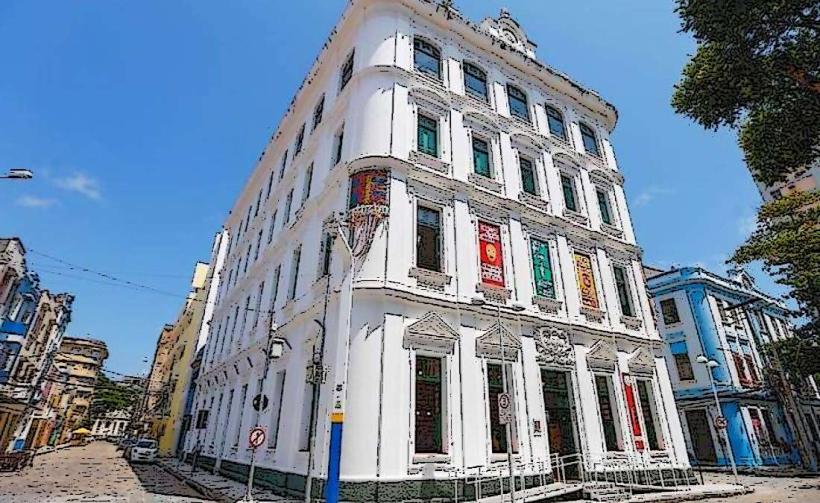Information
Landmark: Igreja de São Gonçalo do AmaranteCity: Recife
Country: Brazil
Continent: South America
Igreja de São Gonçalo do Amarante, Recife, Brazil, South America
The Igreja de São Gonçalo do Amarante is a Roman Catholic church located in the Boa Vista neighborhood of Recife, Brazil.
This religious structure is characterized by its Baroque architectural style, featuring a facade constructed primarily from sandstone. The church stands at approximately 25 meters in height and is distinguished by its twin bell towers and a central pediment adorned with sculptural elements.
Location & Access Logistics
The church is situated at Praça São Gonçalo do Amarante, approximately 2.5 kilometers west of Recife's city center. Access is via Avenida Guararapes, a major urban thoroughfare. Public parking is available on surrounding streets, though capacity is limited. Bus lines 101, 141, and 168 stop within a 200-meter radius of the church.
Historical & Ecological Origin
Construction of the Igreja de São Gonçalo do Amarante began in 1740 and was completed in 1765. It was built under the direction of Father Manuel de Jesus Maria, serving as a parish church and a center for religious devotion.
Key Highlights & Activities
Visitors can observe the detailed interior carvings and altarpieces. The main altar is dedicated to São Gonçalo do Amarante. Photography is permitted within the nave and chapels, excluding during services.
Infrastructure & Amenities
Restrooms are available for public use. Limited shaded areas are present in the immediate vicinity of the church entrance. Cell phone signal (4G/5G) is generally consistent in this urban area. Food vendors are typically found along Avenida Guararapes.
Best Time to Visit
For interior photography, the morning hours (9:00 AM to 11:00 AM) offer diffused natural light through the stained-glass windows. The church is open daily from 8:00 AM to 5:00 PM, with reduced hours on Sundays.
Facts & Legends
A local anecdote suggests that a specific tile on the main altar depicts a hidden symbol, though its meaning remains a subject of local speculation.
Nearby Landmarks
- Teatro de Santa Isabel (0.3km Northeast)
- Palácio do Campo das Princesas (0.4km East)
- Museu do Estado de Pernambuco (0.6km West)
- Parque 13 de Maio (0.7km Northwest)

